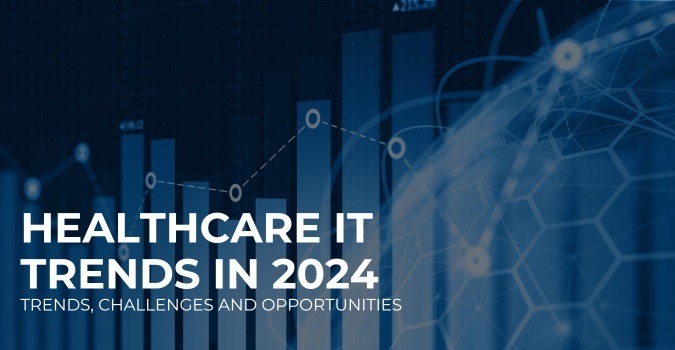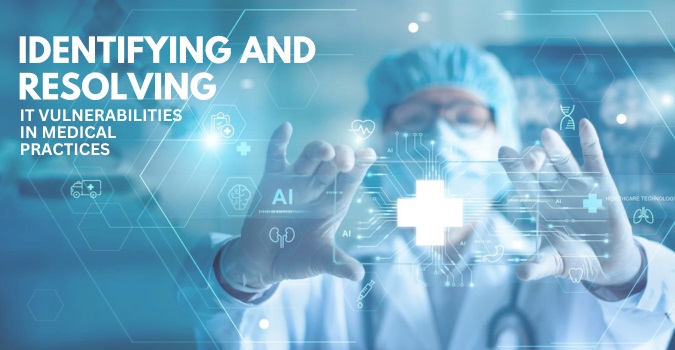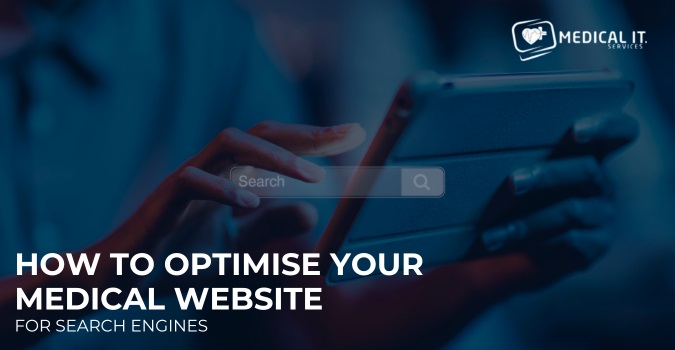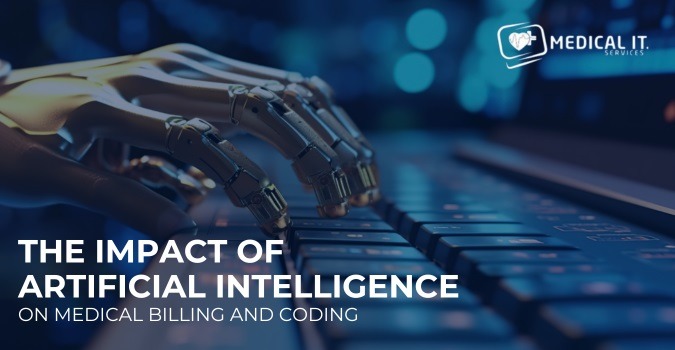In today's digital age, medical practices heavily rely on information technology to manage patient records,…

Healthcare IT in 2024: Trends, Challenges, and Opportunities
As we move into 2024, the healthcare industry continues to evolve at an unprecedented pace. The rapid advancements in technology have revolutionized the way healthcare is delivered, and the role of IT in healthcare has become more critical than ever. In this blog post, we will discuss the trends, challenges, and opportunities that healthcare IT professionals can expect to encounter in 2024.
Trends Shaping Healthcare IT in 2024:
The healthcare sector is driven by advancements in technology and the ever-growing demand for efficient, accessible, and secure patient care. Here are some key trends shaping the future of Healthcare IT in 2024 and beyond:
Interoperability and Data Exchange:
Interoperability remains a top priority in 2024, with a heightened focus on seamless data exchange among different healthcare systems. Standardized protocols, such as FHIR (Fast Healthcare Interoperability Resources), are gaining widespread adoption, facilitating the secure and efficient sharing of patient data across platforms.
Artificial Intelligence (AI) and Machine Learning (ML):
AI and ML applications continue to revolutionise healthcare sector by enhancing diagnostic accuracy, predicting disease trends, and optimising treatment plans. From image recognition in radiology to natural language processing for electronic health record (EHR) analysis, AI is becoming an integral part of healthcare decision-making processes.
Telehealth and Remote Patient Monitoring:
The global shift towards virtual healthcare services has accelerated, driven by the ongoing need for remote patient care. Telehealth platforms and remote monitoring technologies enable healthcare providers to offer timely and accessible services, improving patient engagement and reducing the burden on physical facilities.
Blockchain for Security and Privacy:
Blockchain technology is increasingly utilized to address security and privacy concerns in healthcare data management. It ensures the integrity of medical records, enhances data security, and facilitates transparent and traceable transactions, ultimately fostering trust in healthcare IT systems.
Challenges Facing Healthcare IT:
Despite the exciting trends shaping the future of Healthcare IT (HIT), several significant challenges remain:
Cybersecurity Threats:
The digitization of healthcare data brings about increased cybersecurity risks. Protecting patient information from cyber threats, such as ransomware attacks and data breaches, is a significant challenge. Continuous advancements in cybersecurity measures are crucial to maintaining the integrity and confidentiality of healthcare data.
Regulatory Compliance:
Healthcare IT professionals grapple with evolving regulatory requirements and compliance standards. Staying abreast of changes and ensuring that systems adhere to regulations such as HIPAA (Health Insurance Portability and Accountability Act) is an ongoing challenge for healthcare organisations.
Integration of Emerging Technologies:
Integrating new technologies into existing healthcare systems poses integration challenges. Overcoming interoperability issues, training staff, and ensuring a smooth transition without disrupting daily operations require careful planning and execution.
Workforce Shortages:
The healthcare industry faces a shortage of qualified IT professionals, hindering the implementation and maintenance of complex HIT solutions. Addressing this challenge requires attracting and retaining talent through competitive salaries, training programs, and fostering a positive work environment.
Cost of Maintenance:
Implementing advanced IT solutions can be expensive for healthcare organisations, especially smaller practices with limited budgets. Finding cost-effective solutions, exploring alternative models like cloud computing, and securing funding through grants or partnerships are crucial for wider adoption.
Opportunities Offered by Healthcare IT:
Despite the existing challenges, Healthcare IT (HIT) presents a multitude of exciting opportunities to revolutionize patient care and shape a more sustainable future for healthcare delivery. Here are some key opportunities to explore:
Improved Patient Engagement and Empowerment:
Technological advancements can empower patients to take a more active role in their health management. Patient portals, wearable medical devices, and educational resources can improve communication, self-care, and overall patient experience.
Enhanced Clinical Decision-Making:
Advanced analytics and AI-powered tools can assist healthcare professionals in making informed decisions, potentially leading to improved diagnosis, treatment planning, and patient outcomes.
Streamlined Workflow and Efficiency:
Automation, telehealth platforms, and integration of various systems can help reduce administrative burdens and streamline workflow for healthcare providers, allowing them to focus on patient care.
Cost-Effective Care Delivery:
By leveraging technology effectively, healthcare organisations can potentially achieve cost savings through improved resource allocation, reduced administrative overhead, and prevention of avoidable re-admissions.
Personalized and Preventive Care:
Utilizing data analytics and AI, healthcare systems can personalise care plans and potentially predict potential health issues, allowing for preventative measures and early intervention.
Summary:
In conclusion, Healthcare IT in 2024 stands at a crossroads, facing significant challenges and opportunities. By embracing new technologies, addressing ongoing issues, and prioritizing patient-centric solutions, the healthcare industry can navigate this transformative stage and move towards a future of improved patient care, increased efficiency, and enhanced clinical decision-making.
Partner Up for Healthier IT with MedicalIT.Services
MedicalIT.Services emerge as a pivotal ally in the ever-evolving landscape of healthcare technology, offering a comprehensive array of solutions to address the industry’s pressing needs. Leveraging cutting-edge technologies like artificial intelligence, interoperable systems, and secure blockchain frameworks, MedicalIT.services facilitates seamless data exchange, ensuring efficient communication among healthcare entities.
Also Read:




